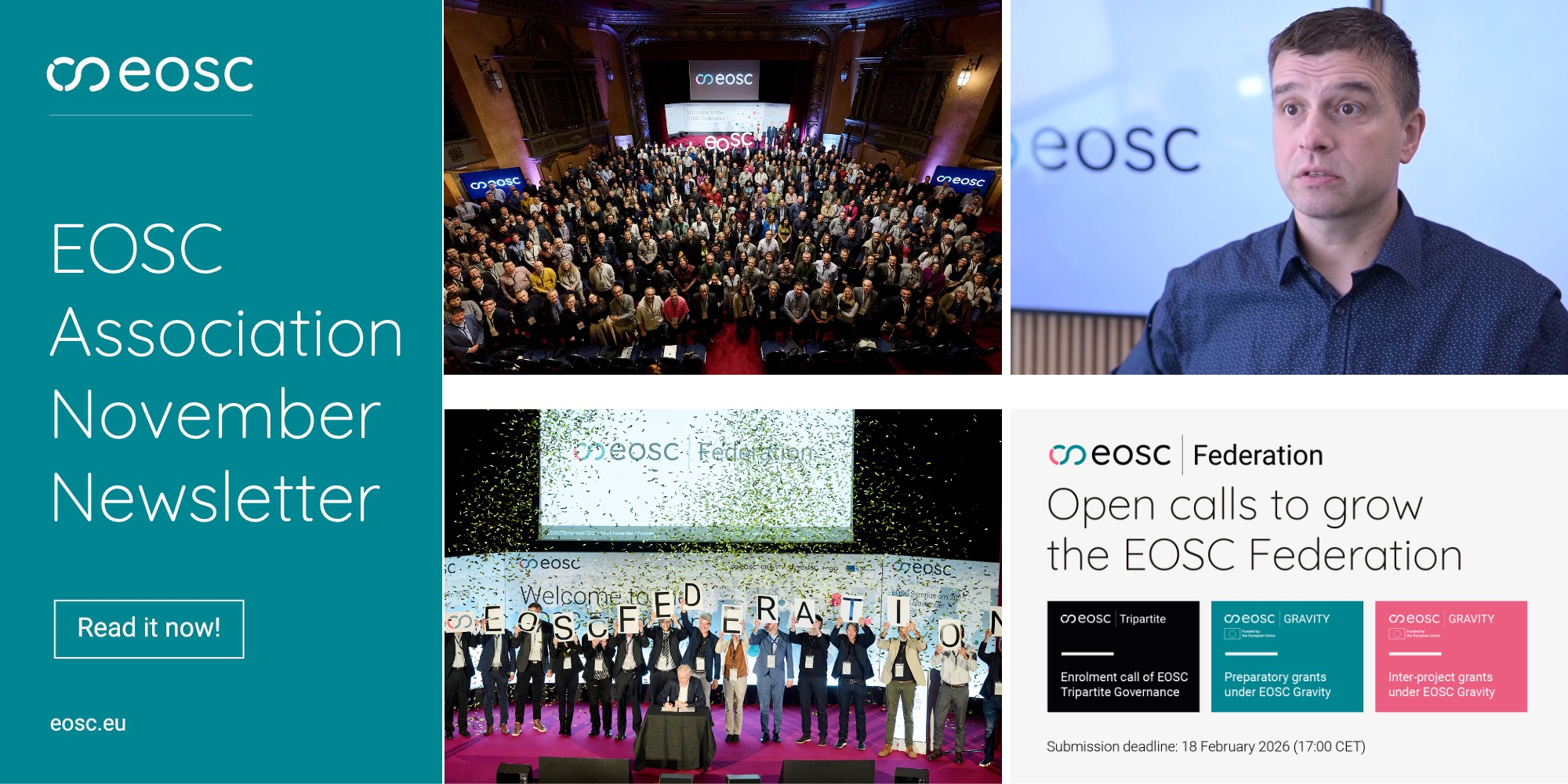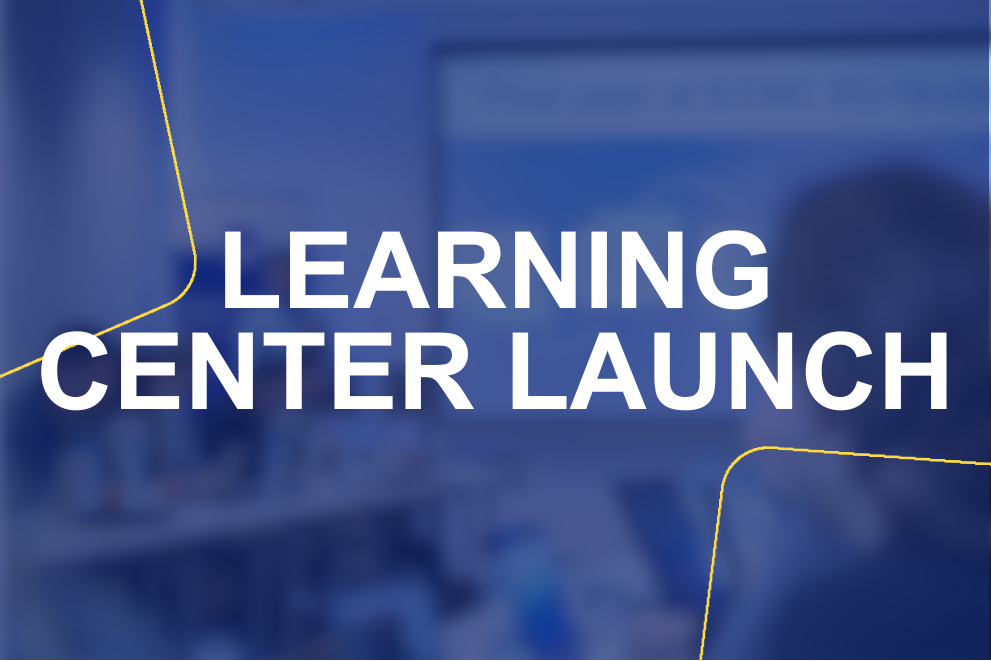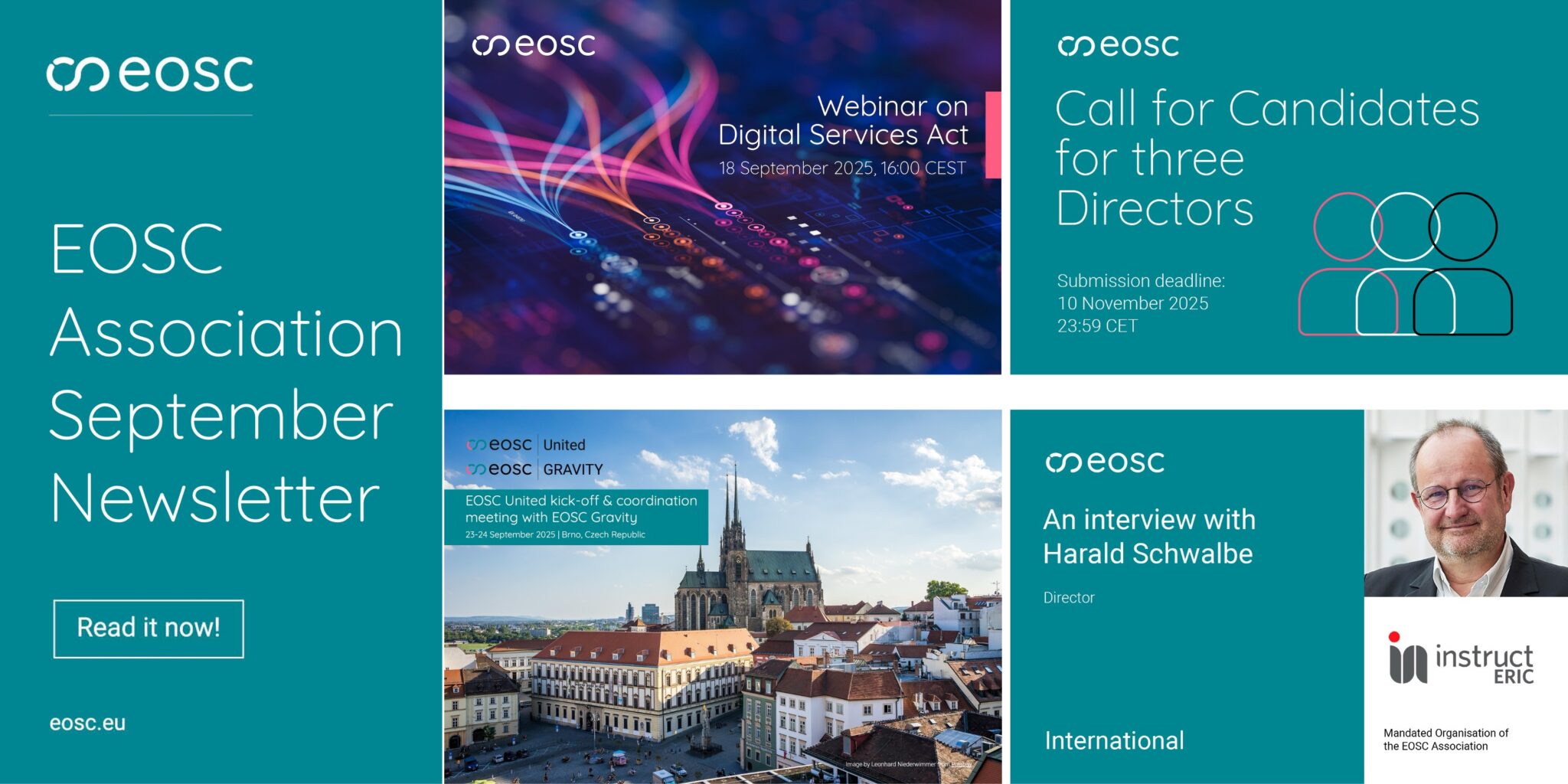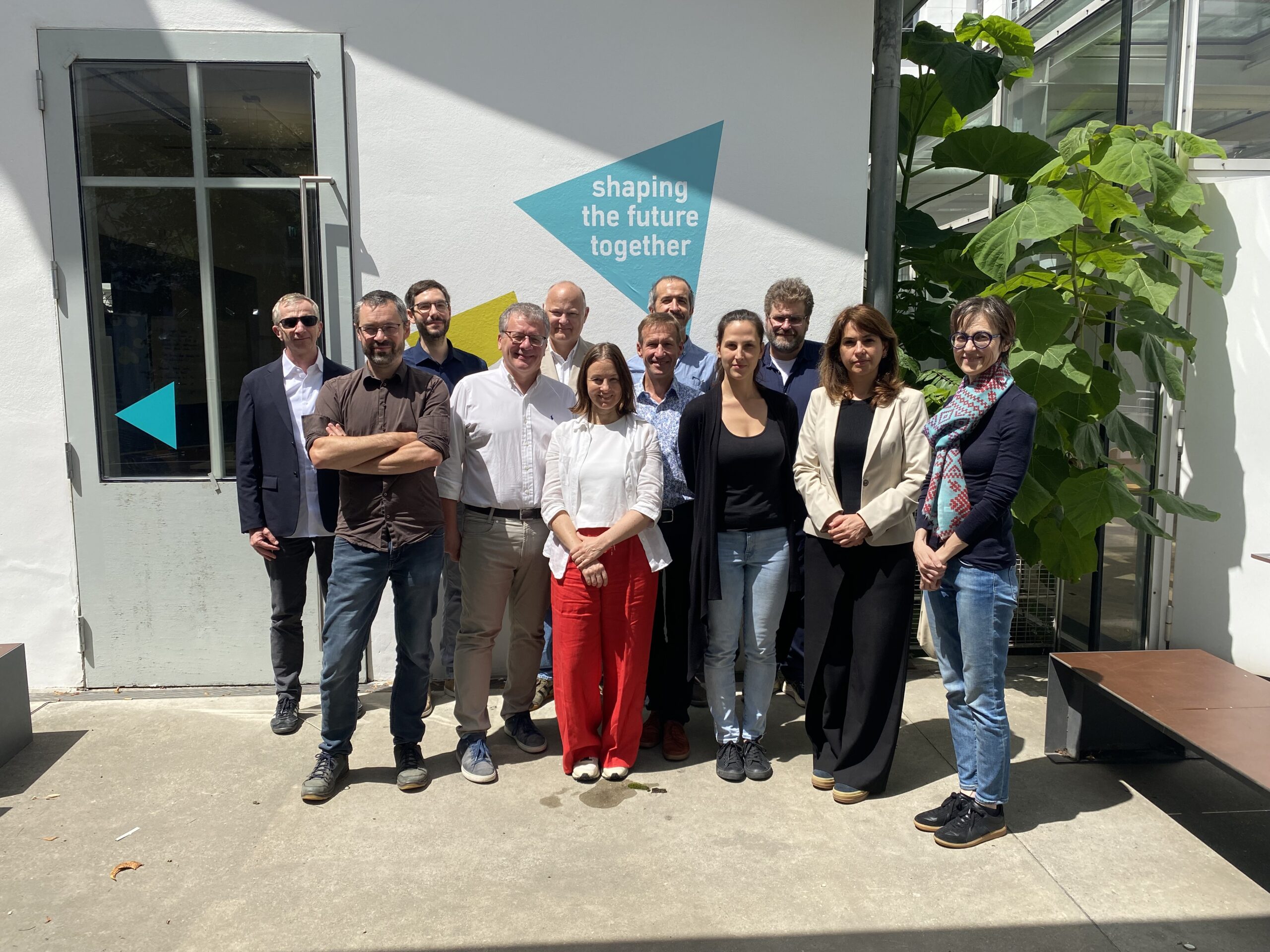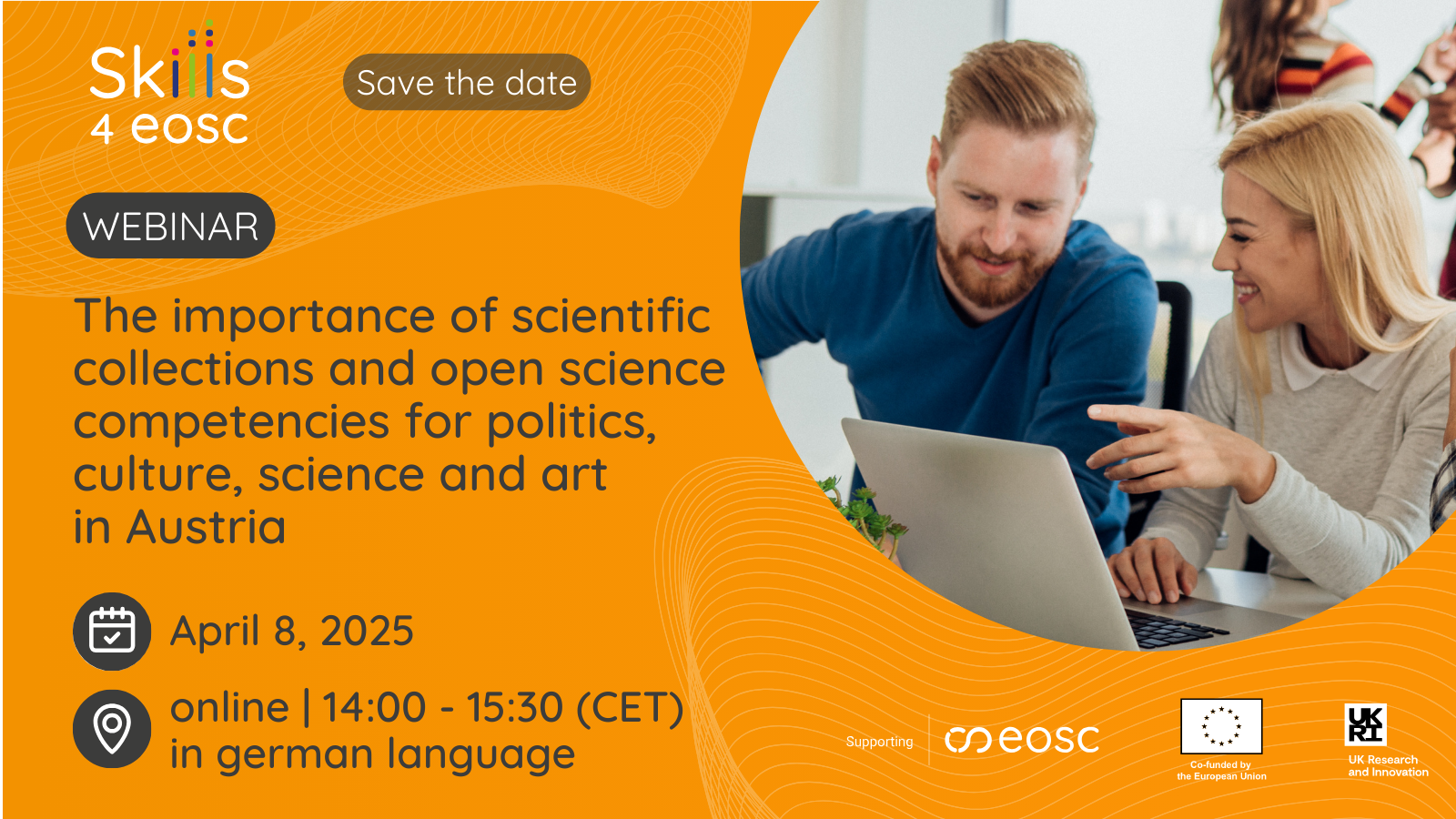EOSC Association Newsletter #53
Welcome to the November edition of the EOSC Association Newsletter! Highlights of this issue include: “Let’s seize this moment!”: Momentum made visible at EOSC Symposium 2025, Welcome to the EOSC Federation: MoU establishes shared path to operations, Three open calls to grow the EOSC Federation, Register to attend GA#12 and save the date of GA#13, Interview with Petr Holub, BBMRI-ERIC EOSC Node. Take a look at our newsletter for the most recent updates from the EOSC ecosystem! Happy reading!

